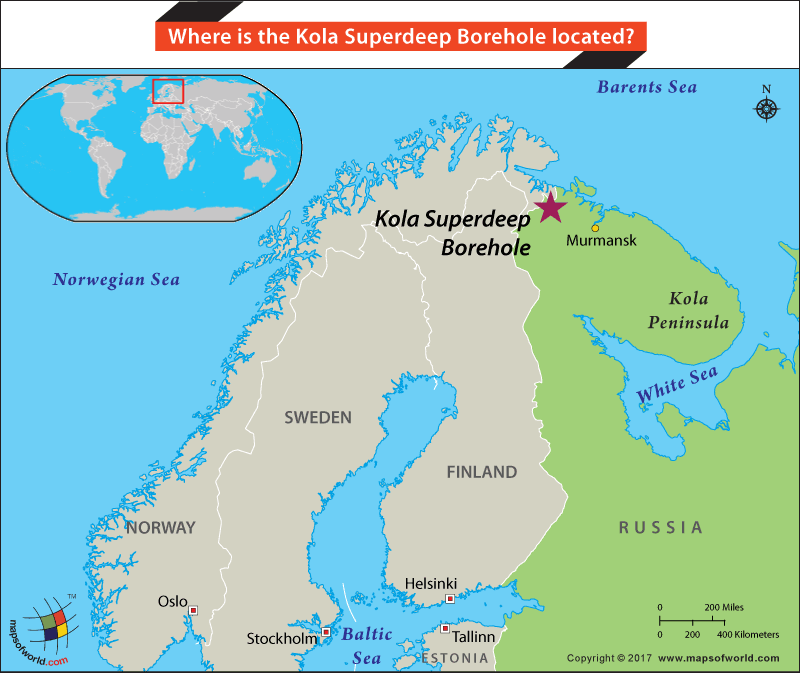Where is the Kola Superdeep Borehole located?
The Kola Superdeep Borehole was, until 2008, considered the deepest hole dug by humans into the surface of the earth. It is located high up on the Kola Peninsula (near the city of Murmansk) in the Pechengsky District of Russia. The hole goes nearly 7.5 miles (approximately 12 kilometers) into the Earth’s crust.
The Kola Superdeep Borehole is the result of a scientific experiment undertaken by the Soviet Union during the Cold War era. Just as the USA and the USSR were embroiled in an arms race and space race, the race to drill down to the Earth’s mantle also became the subject of rivalry. The United States undertook Project Mohole, which was funded by the National Science Foundation, and started to drill off the coast of Guadalupe Island in Mexico. This project went on to dig a 601-foot-deep hole in the sea floor under 11,700 feet of water, thus making way for the possibility of offshore drilling in the years to come. In 1966, the project was permanently shut down.
Subsequently the USSR selected the Kola Peninsula as the perfect site, and drilling began on May 24th, 1970. The work continued quietly until 1994, creating the deepest hole created by mankind at that time. While the ultimate objective of drilling to the end of the Earth’s crust did not come true, the Kola Superdeep Borehole certainly opened up a number of research avenues. The crust of the Earth was studied from unprecedentedly close quarters. The presence of microscopic plankton fossils in rocks which dated back two billion years (at a depth of about four miles beneath the surface) was one of the most breakthrough discoveries.
Drilling had to be abandoned in 1994 because at the depth, temperatures shot up to 356 degrees Fahrenheit (180 degrees Celsius) and drilling devices started to melt. It was over a decade later, in 2005, that the project was officially terminated.
In 2008, the Kola Superdeep Borehole lost its claim at being the world’s deepest borehole to the Shaheen oil well in Qatar, at 40,318 feet deep.
Related Maps:



